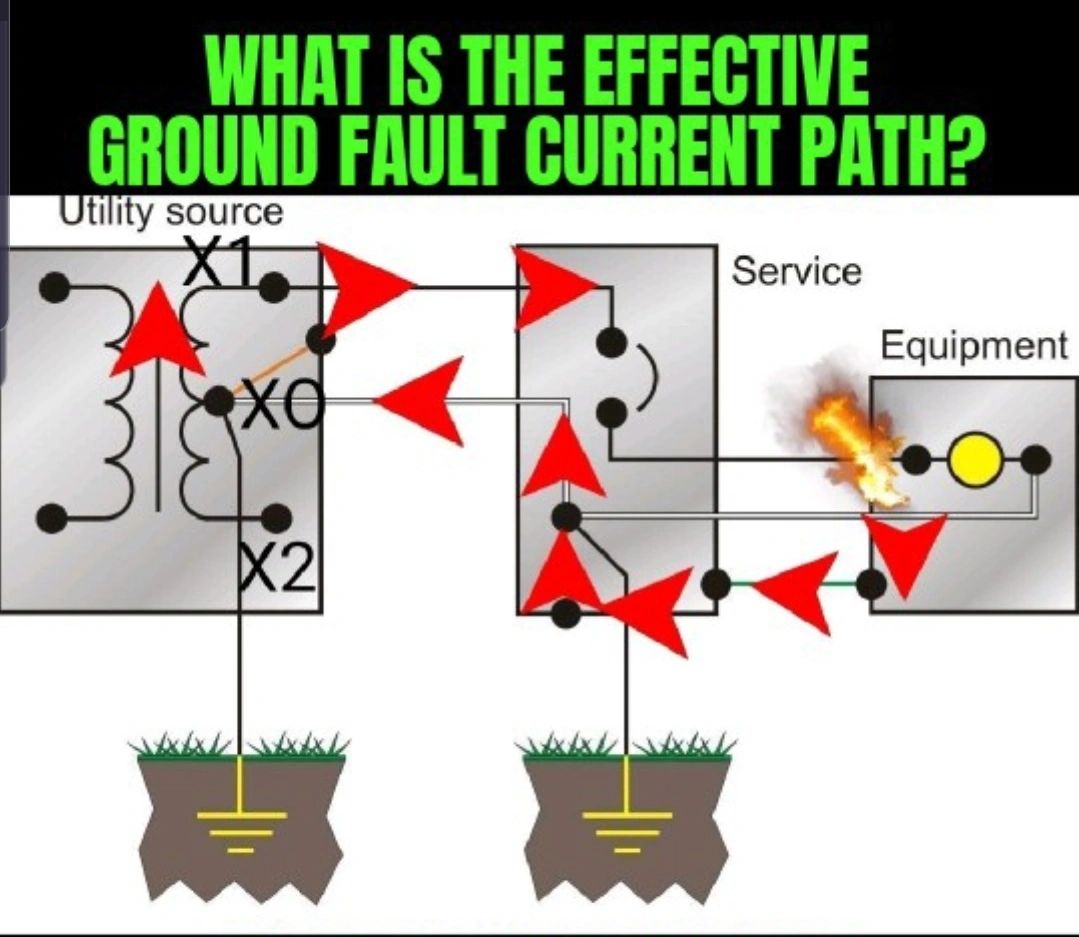What Is An Effective Ground-fault Current Path
If you are working with electricity, then you know how important safety is. One of the most important safety measures to keep in mind is ensuring that your electrical system can handle ground faults.
Whether you are an electrician or a homeowner, you want to ensure that your electrical system is reliable and efficient. But sometimes, even the most carefully maintained system can experience issues related to ground faults. Common concerns include electrical shock, fires, and even hazards due to lightning strikes.
The effective ground-fault current path is a critical component of your electrical system. This is the path that allows current to safely move from its source to the ground, without building up in the system in a way that could cause damage or harm.
When considering the effective ground-fault current path, it is important to think about several key components. First, there is the ground rod itself, which provides a safe and reliable way for current to leave the system. Additionally, grounding conductors and other components play key roles in ensuring that the electrical system is working as intended.
My Personal Experience with Effective Ground-Fault Current Paths
As someone who has worked with electrical systems for many years, I know firsthand how important the effective ground-fault current path is. I have seen countless situations where ground faults have caused serious issues, from blown circuits to electrical fires.
One time, I was called to address a ground fault in a commercial property. After some investigation, I discovered that there were issues with the grounding conductor that were causing problems in the system. Once the grounding conductor was repaired and the system was properly grounded, the problem was resolved and the property was once again safe for use.
How to Ensure a Reliable Effective Ground-Fault Current Path
Ensuring that your electrical system has a reliable and effective ground-fault current path is relatively simple, but it requires attention to detail and a keen eye for potential issues. Regular inspections of your electrical system can help you identify potential problems before they become serious. Additionally, proper installation of grounding conductors and other components is critical for ensuring that your system is working as intended.
Benefits of a Proper Ground-Fault Current Path
Investing in a reliable and effective ground-fault current path has many benefits. For one thing, it provides peace of mind knowing that your system is working reliably and safely. Additionally, a properly grounded system is more efficient, which can help save you money on your energy bill. And finally, investing in a proper ground-fault current path can help extend the lifespan of your electrical system, saving you money in the long run.
What Happens When a Ground Fault Occurs?
When a ground fault occurs, it means that current is flowing through an unintended path. This can cause a variety of issues, including blown fuses, tripped circuit breakers, damage to electrical components, and even electrical fires or shock hazards. A properly grounded system helps to prevent these problems by providing a safe path for current to leave the system.
The Importance of Regular Maintenance
While investing in a reliable and effective ground-fault current path is critical, it is also important to perform regular maintenance on your electrical system to identify potential issues before they become serious. This may include regular inspections, cleaning or replacing components as needed, and addressing any issues or concerns promptly. By taking a proactive approach to maintenance, you can help ensure that your electrical system is working properly and safely for years to come.
Question and Answer
What is an effective ground-fault current path?
An effective ground-fault current path is the path that allows current to safely move from its source to the ground, without building up in the system in a way that could cause damage or harm.
Why is a reliable ground-fault current path important?
A reliable ground-fault current path is important for ensuring that your electrical system is safe and efficient. Without it, you risk damage to your system, unsafe conditions for those using the space, and other potential hazards.
How can you ensure that your grounding system is working properly?
You can ensure that your grounding system is working properly by performing regular inspections and maintenance of your system. This may include checking for proper installation of grounding conductors, identifying and addressing any issues with the ground rod or other components, and monitoring your system for signs of problems.
What issues can arise if you don't have a reliable ground-fault current path?
Without a reliable ground-fault current path, you risk a variety of issues related to electrical safety and efficiency. From tripped circuit breakers to electrical fires or even hazardous conditions related to lightning strikes, the consequences of a faulty grounding system can be serious.
Conclusion of Effective Ground-Fault Current Paths
Ensuring that your electrical system has a reliable and effective ground-fault current path is critical for safety, efficiency, and longevity. By taking the time to properly install and maintain your grounding system, you can help protect your property and the people who use it from hazards related to ground faults.
Gallery
Grounding And Bonding.

Photo Credit by: bing.com / bonding fault grounding
Replace Cloth Wiring

Photo Credit by: bing.com /
Code Q&A | EC&M

Photo Credit by: bing.com / fault
Basic Electricity | Physics Forums
Photo Credit by: bing.com / ground grounding path wire hot shock electricity basic happens touches earth if impedance bonding proper reducing fires faults preventing clearing
Code Q&A: Effective Ground-Fault Current Path | EC&M

Photo Credit by: bing.com / fault effective grounding ecmweb question bonding ec
0 Response to "What Is An Effective Ground-fault Current Path"
Posting Komentar